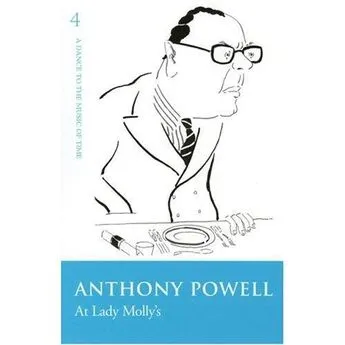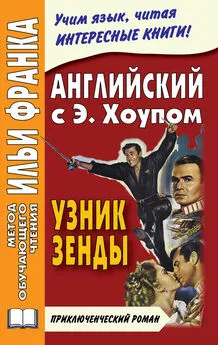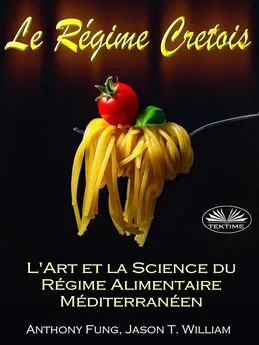Anthony Trollope - Autobiography of Anthony Trollope
- Название:Autobiography of Anthony Trollope
- Автор:
- Жанр:
- Издательство:неизвестно
- Год:неизвестен
- ISBN:нет данных
- Рейтинг:
- Избранное:Добавить в избранное
-
Отзывы:
-
Ваша оценка:
Anthony Trollope - Autobiography of Anthony Trollope краткое содержание
EBook of Autobiography of Anthony Trollope by Anthony Trollope (www.anthonytrollope.com)
Autobiography of Anthony Trollope - читать онлайн бесплатно ознакомительный отрывок
Интервал:
Закладка:
and at last by the writing of novels I had risen.
I do not think that I ever toadied any one, or that I have acquired
the character of a tuft-hunter. But here I do not scruple to say
that I prefer the society of distinguished people, and that even the
distinction of wealth confers many advantages. The best education
is to be had at a price as well as the best broadcloth. The son
of a peer is more likely to rub his shoulders against well-informed
men than the son of a tradesman. The graces come easier to the
wife of him who has had great-grandfathers than they do to her
whose husband has been less,--or more fortunate, as he may think
it. The discerning man will recognise the information and the graces
when they are achieved without such assistance, and will honour
the owners of them the more because of the difficulties they have
overcome;--but the fact remains that the society of the well-born
and of the wealthy will as a rule be worth seeking. I say this
now, because these are the rules by which I have lived, and these
are the causes which have instigated me to work.
I have heard the question argued--On what terms should a man of
inferior rank live with those who are manifestly superior to him?
If a marquis or an earl honour me, who have no rank, with his
intimacy, am I in my intercourse with him to remember our close
acquaintance or his high rank? I have always said that where the
difference in position is quite marked, the overtures to intimacy
should always come from the higher rank; but if the intimacy be
ever fixed, then that rank should be held of no account. It seems
to me that intimate friendship admits of no standing but that
of equality. I cannot be the Sovereign's friend, nor probably the
friend of many very much beneath the Sovereign, because such equality
is impossible.
When I first came to Waltham Cross in the winter of 1859-1860, I had
almost made up my mind that my hunting was over. I could not then
count upon an income which would enable me to carry on an amusement
which I should doubtless find much more expensive in England than
in Ireland. I brought with me out of Ireland one mare, but she was
too light for me to ride in the hunting-field. As, however, the
money came in, I very quickly fell back into my old habits. First
one horse was bought, then another, and then a third, till it became
established as a fixed rule that I should not have less than four
hunters in the stable. Sometimes when my boys have been at home
I have had as many as six. Essex was the chief scene of my sport,
and gradually I became known there almost as well as though I had
been an Essex squire, to the manner born. Few have investigated more
closely than I have done the depth, and breadth, and water-holding
capacities of an Essex ditch. It will, I think, be accorded to me
by Essex men generally that I have ridden hard. The cause of my
delight in the amusement I have never been able to analyse to my
own satisfaction. In the first place, even now, I know very little
about hunting,--though I know very much of the accessories of the
field. I am too blind to see hounds turning, and cannot therefore
tell whether the fox has gone this way or that. Indeed all the
notice I take of hounds is not to ride over them. My eyes are so
constituted that I can never see the nature of a fence. I either
follow some one, or ride at it with the full conviction that I
may be going into a horse-pond or a gravel-pit. I have jumped into
both one and the other. I am very heavy, and have never ridden
expensive horses. I am also now old for such work, being so stiff
that I cannot get on to my horse without the aid of a block or a
bank. But I ride still after the same fashion, with a boy's energy,
determined to get ahead if it may possibly be done, hating the
roads, despising young men who ride them, and with a feeling that
life can not, with all her riches, have given me anything better
than when I have gone through a long run to the finish, keeping a
place, not of glory, but of credit, among my juniors.
CHAPTER X "THE SMALL HOUSE AT ALLINGTON," "CAN YOU FORGIVE HER?" "RACHEL RAY," AND THE "FORTNIGHTLY REVIEW"
During the early months of 1862 Orley Farm was still being brought
out in numbers, and at the same time Brown, Jones and Robinson was
appearing in the Cornhill Magazine. In September, 1862, the Small
House at Allington began its career in the same periodical. The
work on North America had also come out in 1862. In August, 1863,
the first number of Can You Forgive Her? was published as a separate
serial, and was continued through 1864. In 1863 a short novel was
produced in the ordinary volume form, called Rachel Ray. In addition
to these I published during the time two volumes of stories called
The Tales of all Countries. In the early spring of 1865 Miss Mackenzie
was issued in the same form as Rachel Ray; and in May of the same
year The Belton Estate was commenced with the commencement of the
Fortnightly Review, of which periodical I will say a few words in
this chapter.
I quite admit that I crowded my wares into the market too
quickly,--because the reading world could not want such a quantity
of matter from the hands of one author in so short a space of
time. I had not been quite so fertile as the unfortunate gentleman
who disgusted the publisher in Paternoster Row,--in the story of
whose productiveness I have always thought there was a touch of
romance,--but I had probably done enough to make both publishers
and readers think that I was coming too often beneath their notice.
Of publishers, however, I must speak collectively, as my sins
were, I think, chiefly due to the encouragement which I received
from them individually. What I wrote for the Cornhill Magazine, I
always wrote at the instigation of Mr. Smith. My other works were
published by Messrs. Chapman & Hall, in compliance with contracts
made by me with them, and always made with their good-will. Could
I have been two separate persons at one and the same time, of whom
one might have been devoted to Cornhill and the other to the interests
of the firm in Piccadilly, it might have been very well;--but as
I preserved my identity in both places, I myself became aware that
my name was too frequent on titlepages.
Critics, if they ever trouble themselves with these pages, will, of
course, say that in what I have now said I have ignored altogether
the one great evil of rapid production,--namely, that of inferior
work. And of course if the work was inferior because of the too
great rapidity of production, the critics would be right. Giving
to the subject the best of my critical abilities, and judging of
my own work as nearly as possible as I would that of another, I
believe that the work which has been done quickest has been done
the best. I have composed better stories--that is, have created
better plots--than those of The Small House at Allington and Can
You Forgive Her? and I have portrayed two or three better characters
than are to be found in the pages of either of them; but taking
these books all through, I do not think that I have ever done better
work. Nor would these have been improved by any effort in the art
of story telling, had each of these been the isolated labour of a
couple of years. How short is the time devoted to the manipulation
of a plot can be known only to those who have written plays and
novels; I may say also, how very little time the brain is able
to devote to such wearing work. There are usually some hours of
agonising doubt, almost of despair,--so at least it has been with
me,--or perhaps some days. And then, with nothing settled in my
brain as to the final development of events, with no capability
of settling anything, but with a most distinct conception of some
character or characters, I have rushed at the work as a rider rushes
at a fence which he does not see. Sometimes I have encountered
what, in hunting language, we call a cropper. I had such a fall in
two novels of mine, of which I have already spoken--The Bertrams
and Castle Richmond. I shall have to speak of other such troubles.
But these failures have not arisen from over-hurried work. When my
work has been quicker done,--and it has sometimes been done very
quickly--the rapidity has been achieved by hot pressure, not in
the conception, but in the telling of the story. Instead of writing
eight pages a day, I have written sixteen; instead of working five
days a week, I have worked seven. I have trebled my usual average,
and have done so in circumstances which have enabled me to give
up all my thoughts for the time to the book I have been writing.
This has generally been done at some quiet spot among the
mountains,--where there has been no society, no hunting, no whist,
no ordinary household duties. And I am sure that the work so done
has had in it the best truth and the highest spirit that I have
been able to produce. At such times I have been able to imbue myself
thoroughly with the characters I have had in hand. I have wandered
alone among the rocks and woods, crying at their grief, laughing at
their absurdities, and thoroughly enjoying their joy. I have been
impregnated with my own creations till it has been my only excitement
to sit with the pen in my hand, and drive my team before me at as
quick a pace as I could make them travel.
The critics will again say that all this may be very well as to
the rough work of the author's own brain, but it will be very far
from well in reference to the style in which that work has been
given to the public. After all, the vehicle which a writer uses for
conveying his thoughts to the public should not be less important
to him than the thoughts themselves. An author can hardly hope to
be popular unless he can use popular language. That is quite true;
but then comes the question of achieving a popular--in other words,
I may say, a good and lucid style. How may an author best acquire
a mode of writing which shall be agreeable and easily intelligible
to the reader? He must be correct, because without correctness he
can be neither agreeable nor intelligible. Readers will expect him
to obey those rules which they, consciously or unconsciously, have
been taught to regard as binding on language; and unless he does
obey them, he will disgust. Without much labour, no writer will
achieve such a style. He has very much to learn; and, when he has
learned that much, he has to acquire the habit of using what he has
learned with ease. But all this must be learned and acquired,--not
while he is writing that which shall please, but long before. His
language must come from him as music comes from the rapid touch of
the great performer's fingers; as words come from the mouth of the
indignant orator; as letters fly from the fingers of the trained
compositor; as the syllables tinkled out by little bells form
themselves to the ear of the telegraphist. A man who thinks much of
his words as he writes them will generally leave behind him work
Читать дальшеИнтервал:
Закладка:








